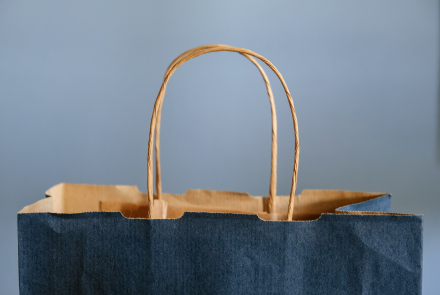
Photo by Lucrezia Carnelos on Unsplash
Pandemic pressures on Australian retail workers
Since the pandemic hit, retail workers have faced job insecurity, customer abuse, and increased stress from enforcing COVID-19 rules – a new report confirms that young, women, casual, and linguistically diverse workers were most affected, Ariadne Vromen, Briony Lipton, Rae Cooper, Meraiah Foley, and Serrin Rutledge-Prior write.
The COVID-19 pandemic caused immeasurable disruption to the Australian retail sector, with profound consequences for retail workers.
When the pandemic hit, workers in essential retail were placed at the front lines of the crisis, with heightened exposure to the virus and anxious customers, while workers in non-essential retail lost jobs and wages as a result of extended lockdowns.
The pandemic also precipitated a rapid adoption of new, contactless technologies, which promise to reshape the retail sector into the future. As lockdown restrictions ease in most parts of Australia, and with the holiday optimism of the Christmas trading season approaching, it is time to closely consider the impacts and pressures of the pandemic on Australian retail workers.
A new report from researchers at The Australian National University and the University of Sydney confirms that for most workers in retail, fast food, and distribution – who constitute at least 11 per cent of the Australian workforce – the pandemic exacerbated their already fragile socio-economic position.
The experiences and concerns of these workers have been underestimated by the media and governments, when compared with other frontline workers.
The current focus on worker shortages, excess JobKeeper payments, and the pivot to online shopping all distract from the attitudes and experiences of those who continued to work throughout the pandemic in essential retail, large supermarkets, distribution centres and warehouses, and fast-food restaurants.
Retail workers have been significantly affected economically, physically, and mentally as a result of the pandemic. Many of these workers faced job losses and unpredictable working hours, amplified hostility and abuse doing their jobs, and an increased risk of virus exposure.
The study is based on a representative online survey of over 1,100 retail, fast food, and distribution workers across Australia in September 2021 conducted by Ipsos Social Research, as well as 30 interviews with senior stakeholders from across the industry in March 2021. Our summary report, Pandemic Pressures, highlights this increasing feeling of job insecurity among Australian retail workers and the effect changing customer relationships has had on their sense of safety and wellbeing.
Overall, around half of retail workers agreed that their working hours had been impacted during the pandemic, either to a great extent or somewhat. However, not all groups were impacted equally.
In particular, women, younger workers under 30, those from non-English-speaking backgrounds, frontline workers, casual workers, and those working in a locked-down region felt most affected by reduced hours and job loss.
Women make up over half of the retail workforce and are more likely to have part-time and/or lower-skilled jobs than men in the sector, who are also more likely to have secure full-time roles.
Australian women have been disproportionately affected by the pandemic recession. They have been more likely to lose paid work, and more likely to take on unpaid work, with existing gender biases being amplified by the pandemic.
While overall less than half of retail workers felt that their job security had decreased as a result of the pandemic, those who were likely to feel more insecure during the pandemic were again women, those under 30, those from a non-English-speaking background, frontline and casual workers, and those working in a locked-down region.
Despite initial job losses and reduced working hours in the sector, the pandemic has been highly lucrative for many areas in retail, with record sales in food, household, and recreational goods, and a shift to online shopping.
Questions remain about why there has been continued job insecurity and unpredictable hours in such a significant sector, and why workers were not redeployed into new online sales and warehouse roles.
Workers have also been facing the stresses of enforcing COVID-19 compliance measures and rising customer abuse. Overall, 56 per cent of retail workers said they experienced a notable increase in customer abuse during the pandemic. Those particularly impacted by this were those under 30, those from a non-English-speaking-background, women, and frontline workers.
While some might attribute incidences of customer abuse towards retail staff as outliers caused by the panic of government lockdowns and restrictions, in fact abuse was felt by workers across the country, regardless of which states or regions were in lockdown.
Another significant shift during the pandemic in Australia for retail workers was monitoring and ensuring customer check-ins, mask wearing, and social distancing. These health and safety practices were used and most widespread in Victoria and New South Wales, but a majority of Australian retail workers experienced a large degree of stress in relation to enforcing these forms of customer COVID-19 safety compliance.
Those most likely to feel stress from enforcing compliance were again women, under 30s, frontline workers, those from a non-English-speaking background, and those working in lockdown states.
The way the community engages with frontline workers should always be courteous and respectful. At the same time, as it recovers from COVID-19 and its impacts, Australia now faces long-term policy challenges on how to ensure quality, secure, and safe employment across the entire workforce, and retail is no exception.
Updated: 28 July 2024/Responsible Officer: Crawford Engagement/Page Contact: CAP Web Team












